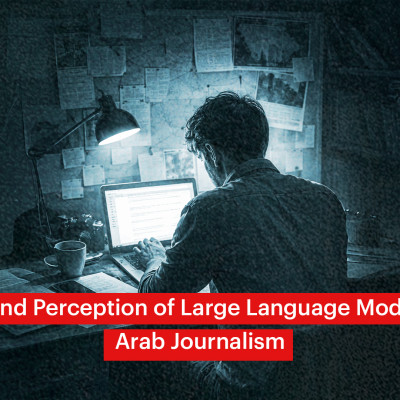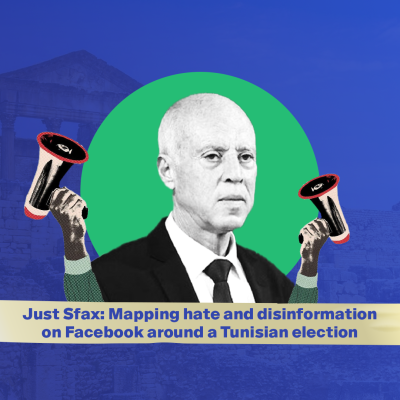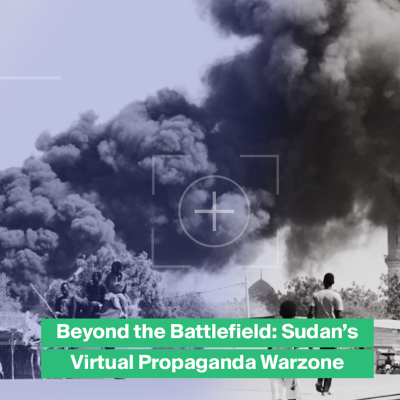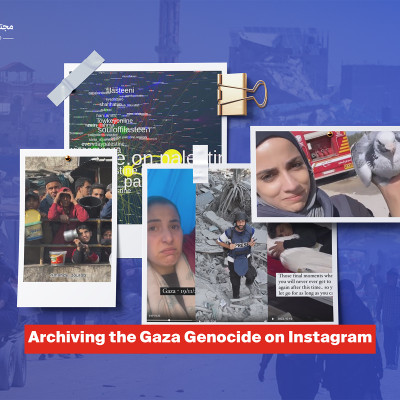Thawab Hilal
is a Senior Scientist at the Department of Communication at the University of Salzburg. Her research focuses on the intersection of communication and international sustainable development, concentrating on climate change communication in the Global South, youth activism, and the challenge of misinformation.
Unraveling COVID-19 Misinformation in Jordan
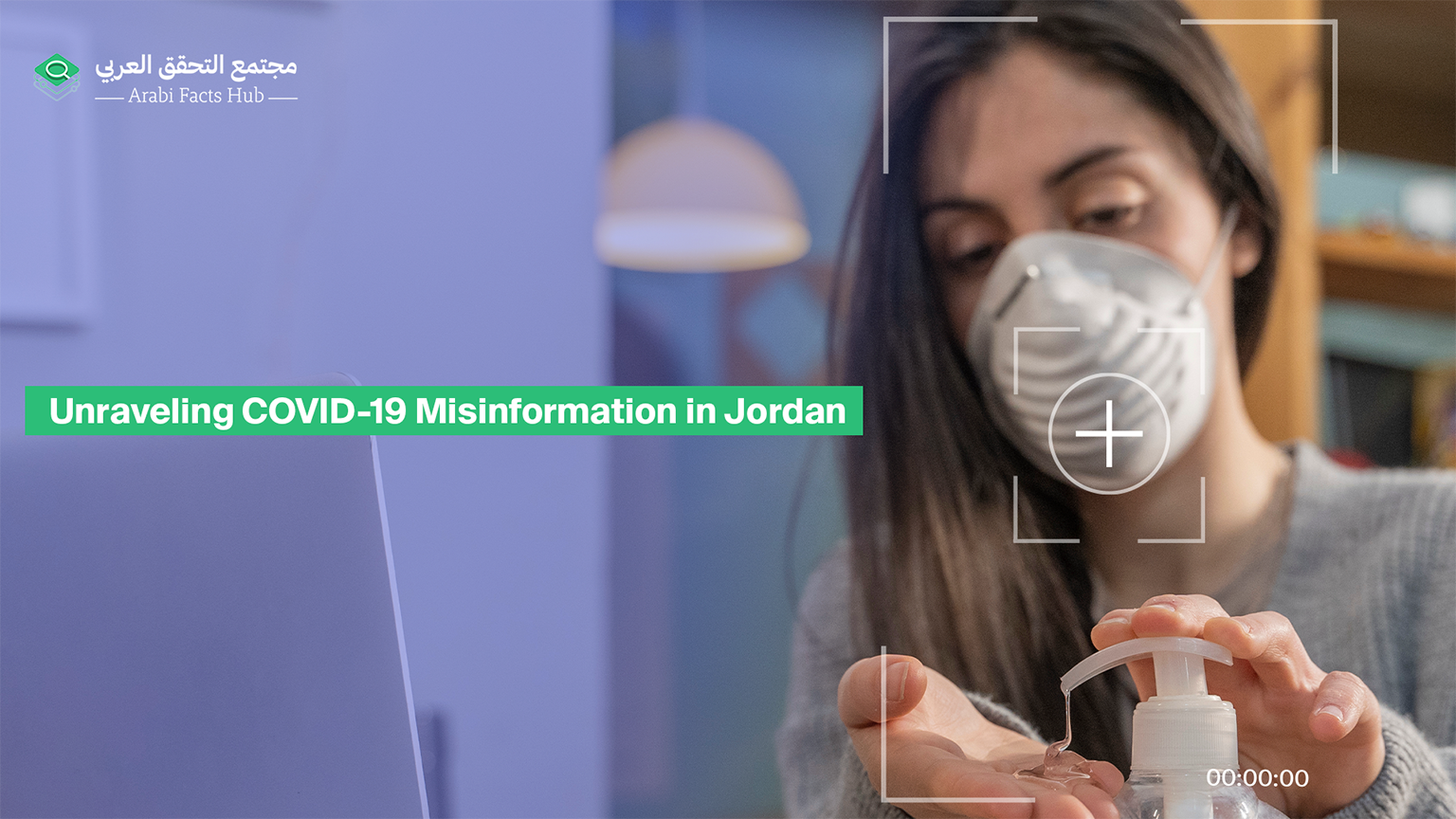
Since the start of the COVID-19 pandemic, the proliferation of misinformation has caused a host of challenges, including hesitance to receive vaccinations and diminished trust in healthcare institutions. Initial assessments from international organizations indicated that COVID-19 has adversely affected economic, social, psychological, and other aspects of life, particularly for vulnerable groups who face heightened risks on multiple levels. In Jordan, the uncertainty and fear surrounding COVID-19 facilitated the swift dissemination of disinformation, including the increased spread of conspiracy theories among many Jordanians.
The media plays a vital role in healthcare by promoting self-care, disseminating information, and enhancing awareness of individual and collective health through community engagement. The pandemic has exacerbated the issue of disinformation and misinformation, affecting public opinion, policy debates, and trust in institutions. Arab users of X, formerly Twitter, predominantly post about 3 main topics: protests, violations of civil liberties, and conspiracy theories related to vaccines. These findings indicate a necessity for further research to comprehend COVID-19 misinformation in the Arab region.
Information disorder surrounding COVID-19 represents a global issue characterized by the widespread dissemination of false information across social media platforms, and this phenomenon is particularly evident in the Arab region, where it has proliferated extensively and have sometimes been used to advance geopolitical influence. Previous research indicates that misconceptions regarding the vaccine contribute to a lack of confidence in its effectiveness, with many individuals doubting the benefits of the booster dose, and some contending that the COVID-19 virus is manufactured, that vaccinations implant microchips for surveillance, or the claim of vaccine-associated infertility – all of which are unsubstantiated claims and could, ultimately, negatively impact public health and vaccination efforts.
COVID-19 in Jordan
After Jordan's first case was announced on March 2, 2020, the government ordered a lockdown and invoked the Defense Law, halting most of the country’s activities. Soon after, widespread misconceptions and conspiracy theories regarding COVID-19 vaccines emerged in Jordan, with social media significantly amplifying harmful beliefs and practices. This led to heightened hesitancy to get vaccinated among Jordanians, significantly hindering effective response to the pandemic. A study conducted in 2020 with a large sample of the public in Jordan revealed that 48 percent believed COVID-19 is part of a global conspiracy, while 57 percent thought the pandemic's origin was linked to biological warfare. This high level of skepticism and conspiracy belief among the public in Jordan regarding the pandemic’s origins and nature may be arising from institutional mistrust, media misinformation, and regional political contexts that deepen suspicion of global powers.
Misinformation campaigns targeted vulnerable communities, exploiting societal anxieties and exacerbating existing fault lines within Arab societies, Jordan included. Studies comparing international contexts in this area have typically concentrated on sociodemographic factors or the willingness to pay for vaccination. In Jordan, attitudes toward emerging infections, such as COVID-19, are shaped by social norms, religious beliefs, and the level of trust in healthcare systems. Thus, targeted public health communication, misinformation countermeasures, and educational efforts to build media literacy and trust and promote critical thinking were and are still needed.
Narratives on social media
Digital media platforms have amplified COVID-19 disinformation and facilitated its rapid spread, creating fertile ground for conspiracy theories and pseudoscientific claims. In fact, Akeed, a media credibility monitor in Jordan, reported 67 instances of misinformation in the first month of lockdown, a figure more than double that of previous months, with this proliferation primarily occurring on local social media channels such as WhatsApp and Facebook. A content analysis of fake news in Jordan during the first year of COVID-19 (April 2020 - April 2021) indicates that the concepts of infodemic and post-truth apply to the dissemination of fake news in Jordan. The study reveals that a significant portion of misinformation originated domestically, with social media platforms serving as the primary channels for these false narratives, and health-related misinformation had a substantial impact, with 48 percent of the analyzed content categorized as inaccurate and 24 percent as intentionally fabricated. The findings highlight the need to address misinformation via comprehensive public awareness and media literacy initiatives and promote critical thinking through education.
Social media misinformation about COVID-19 has been linked to vaccine hesitancy across the Middle East and North Africa, which can in turn hesitancy can undermine immunization campaigns. Thus, misinformation poses a considerable challenge to the Arab world's ability to achieve herd immunity and control the virus's spread. A recent public survey in the Arab region found an association between belief in conspiracy theories about the COVID-19 vaccine and a decline in the intention to vaccinate. In addition to shaping public perceptions, misinformation is perpetuated by underlying economic incentives tied to social media engagement, as the spread of misinformation on social media is found to be often driven by financial incentives linked to user engagement, such as likes on posts.
The emergence of challenges, including the proliferation of published content, data chaos, hostile comments, and news copyright infringement by some users, has complicated the fact-checking process for journalists. For example, there are concerns regarding the accuracy and reliability of information disseminated on social media platforms, alongside the potential for these platforms to reinforce pre-existing biases and create filter bubbles and echo chambers where people only see information that confirms their prejudices and biases. This can cause social fractures by preventing empathy for competing views and can contribute to hostile speech and harassment on social media, creating a toxic environment and harming the mental health of vulnerable individuals and groups.
Mitigation strategies and recommendations
Given the variety of vaccines utilized in Jordan's national vaccination campaigns, it is crucial to evaluate side effects and post-vaccination views to alleviate vaccine hesitancy and misinformation. People engaged in addressing COVID-19 health issues must selectively accept information, prioritizing content from health authorities and expert digital advertisements, as it is essential to lean on reliable data to address the cognitive and contextual gaps created by epidemics of information. Training healthcare professionals to recognize credible information from healthcare settings, government websites, and official channels, implementing media literacy campaigns via basic loudspeaker announcements to advanced web-based educational tools and infographics, prioritizing vulnerable populations in public communication, and tailored messaging were emphasized as essential and effective strategies to counter misinformation. Moreover, sharing these findings via social media is essential, given that vaccination hesitancy has been associated with reliance on social media as the principal information source about COVID-19 vaccines.
The COVID-19 pandemic has prompted significant transformations across social, economic, educational, and cultural domains globally as lockdown measures and the fear of infection negatively affected daily life activities. In response, local government education institutions and stakeholders advocated for distance learning, leading students to utilize social media for both educational and non-educational purposes. Students exhibit an increased motivation to learn and maintain their education during crises, thereby facilitating the acceleration of e-learning adoption. Alongside being subjected to misinformation, young people were also empowered to counter it.
For instance, the "Strong News" application was developed by Jordanian youth to deal with misinformation among teenagers between 16 and 19 years old through a gaming format. In it, the users play the role of a media organization that has to evaluate the information received and distribute the content within the app, building the gamers’ critical thinking and professionalism in a bid to improve their journalism skills. This effort, pushed forward by Germany’s international broadcaster, Deutsche Welle, had a record of over 700 downloads with accolades emphasizing its role in improving young users' critical engagement in the face of disinformation. This shows the importance of embracing collaboration among companies, governments, and users as a mitigation strategy, and it is crucial to also accompany these efforts with ongoing monitoring of misinformation trends, fact-checking, legal measures against sources of misinformation, and targeted communications to dispel myths.
Conclusion
The COVID-19 epidemic has underscored the issue of misinformation and disinformation in the context of health, institutional life, and society as a whole. The situation is comparable in Jordan and the Arab region: the proliferation of unsubstantiated claims, which are significantly amplified by social networking, has resulted in a greater number of individuals refraining from receiving vaccines, has bolstered conspiracy theories, and has undermined the effective response to pandemics. Addressing this issue may require multifaceted strategies, such as promoting media literacy, fostering trust in healthcare providers, employing effective communication strategies, and engaging the youth and the community at large in the fight against misinformation. The Strong News app suggests the potential to integrate digital technologies with the engagement of the younger population to address misinformation, enhance media literacy and critical thinking. Disinformation will exacerbate future issues; hence, appropriate strategies must be established with preventative efforts to safeguard the community’s health.
Dr. Ghofran Hilal
is an Assistant Professor in the Department of Public Law at the Faculty of Law at the University of Jordan. She is an Echenberg Fellow from the Center for Human Rights and Legal Pluralism at McGill University and a member of the Young Arab Policy Analysts Network (YAANI) affiliated with Chatham House.
